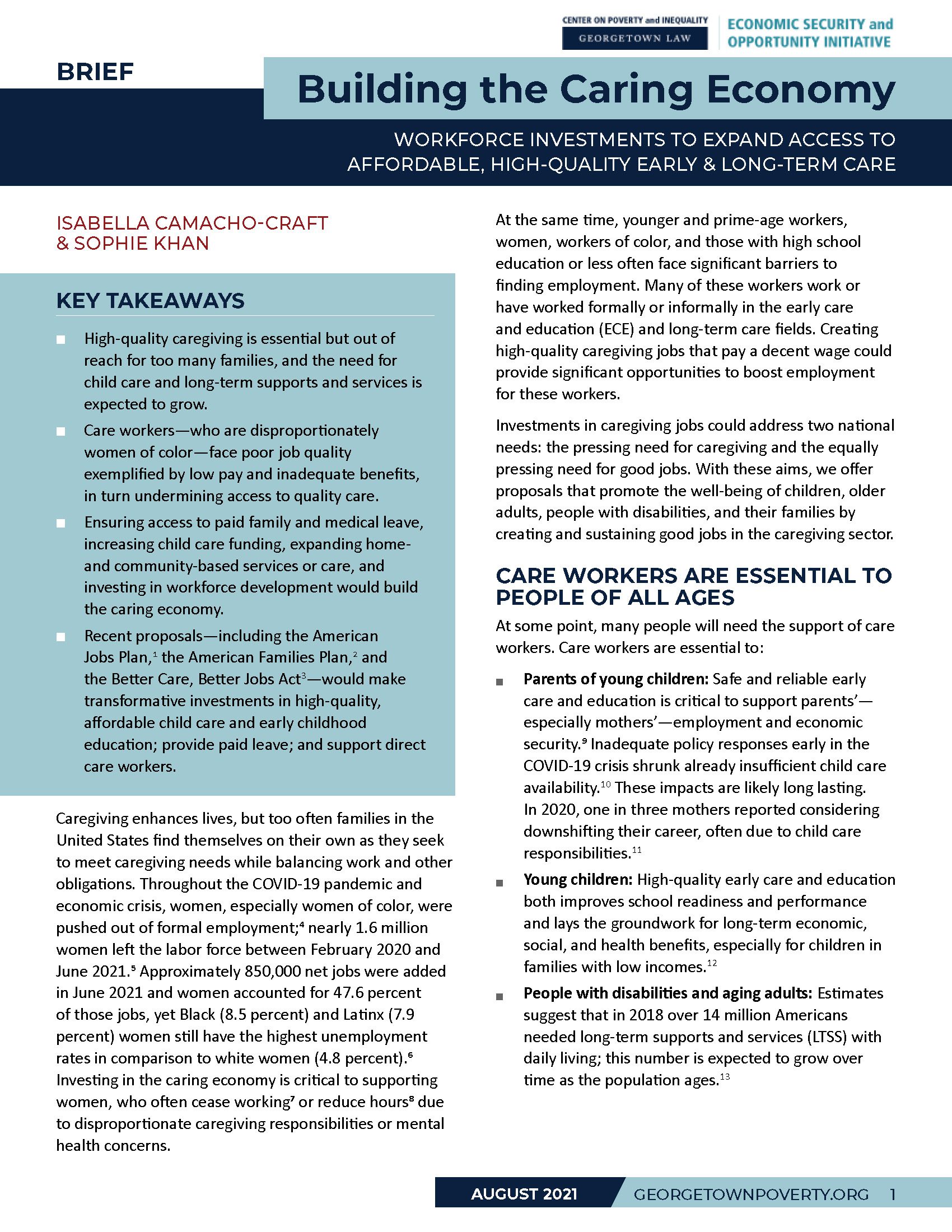High-quality caregiving, including child care and long-term services and supports, is essential but out of reach for too many families. At the same time, care workers—who are disproportionately women of color—face poor job quality, low pay, and inadequate benefits, which undermines access to quality care. This brief offers recommendations for caregiving investments that promote the well-being of children, older adults, people with disabilities, and their families by creating and sustaining good jobs in the caregiving sector.
Key Takeaways
- High-quality caregiving is essential but out of reach for too many families, and the need for child care and long-term supports and services is expected to grow.
- Care workers—who are disproportionately women of color—face poor job quality exemplified by low pay and inadequate benefits, in turn undermining access to quality care.
- Ensuring access to paid family and medical leave, increasing child care funding, expanding home- and community-based services or care, and investing in workforce development would build the caring economy.
- Recent proposals, including the American Jobs Plan, the American Families Plan, and the Better Care, Better Jobs Act would make transformative investments in high-quality, affordable child care and early childhood education, provide paid leave, and support direct care workers.

